


























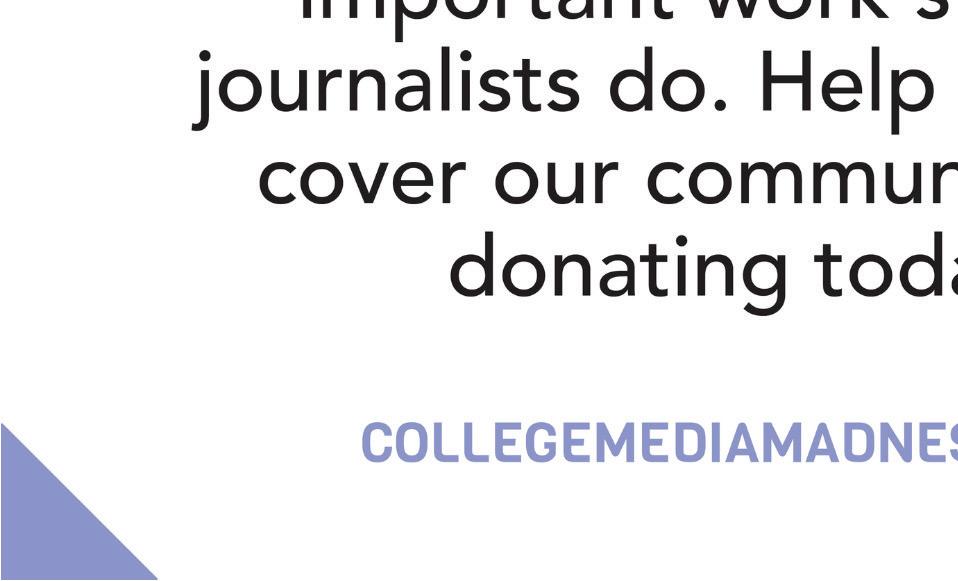
What new graduate program did Weber State University launch in January?

A. Respiratory therapy
B. Physician Assistant

C. Social Work

D. Data Science
What local Ogden restaurant did Weber State partner with to raise money for WSU’s Opportunitad scholarship?
A. Hug-Hes Cafe
B. Jake’s Over the Top
C. Sonora Grill
D. Virg’s
What Nobel Prize-winning poet is coming to Weber State on March 30 as part of the National Undergraduate Literature Conference?
A. Abdulrazak Gurnah
B. Kazuo Ishiguro
C. Alice Munro
D. Louise Glück
On International Women’s Day, three of WSU’s female deans shared their thoughts and experiences on inspiring women in leadership. How many of the eight deans at WSU are women?
A. Seven
B. Three
C. Five
D. Four










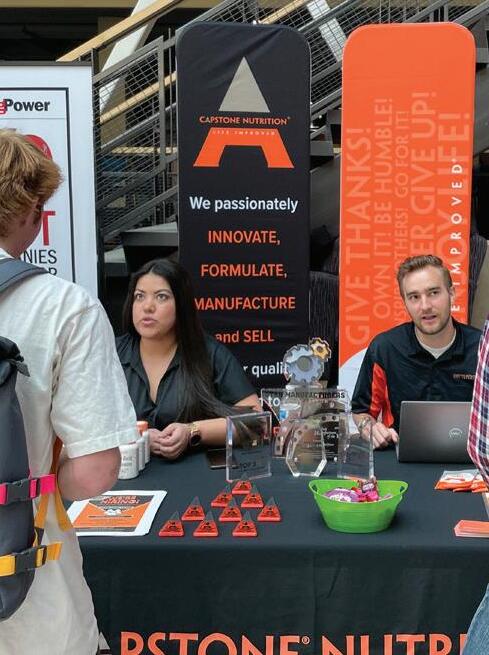
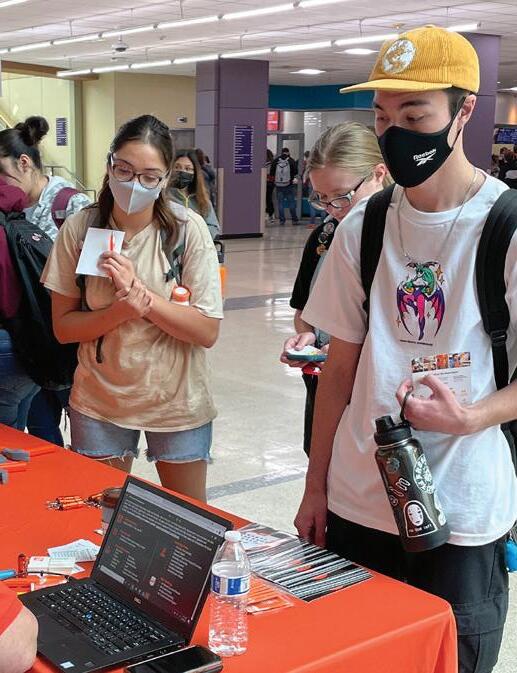

Starting college can be exciting and stressful at the same time. Weber State University offers a First Year Experience program to help new students navigate through college.
“The class is all about learning the skills necessary to be a successful college student, so teaching students how to manage their time, their stress, goal setting; we talk a lot about the purpose of education,” Ariel Olson, assistant director for FYE, said.
Starting in 1995, FYE aims to help students have the best possible experience. This includes telling students what amenities are offered, networking options and clubs found on campus.
”We also go over a lot of the campus resources so you don’t end up being a senior saying, like, ‘Wow, I wish I had known that,’” Olson said.
In a class, there are about 20 new students and a peer mentor. The peer mentor is also a student but has been at WSU for at least one semester. Peer mentors are there to be more approachable to ask questions to those who may not want to talk to the instructor.
Along with giving students advice and guidance on how to get through college, FYE classes count for three credits towards students’ degrees. These classes tend to be easier than other classes, only needing a D+ to pass.
If a new student knows where they are going in college but still wants to experi-
ence an FYE class, there are other classes they can join that are specialized in certain areas. For example, if students enjoy the outdoors, they can take a hiking class and receive credits.
Other specialized classes are college-specific classes that are dedicated to one of the colleges like the business or social sciences.
There are also honors classes students can take to explore different degrees. The honors classes are student-led and focus more on discussions than lectures.
If students already know what type of degree they want, the college-specific classes are good, but FYE classes can help solidify their choice in degree. These classes also go through what types of degrees are needed for careers.
Students who have already taken the
class have the opportunity of being a peer mentor. The peer mentors are there to help new students navigate college life.
They do have a class to register for that gives them the opportunity to learn leadership skills as well as a tuition waiver and upper-division credits.
“My story with FYE is that I took the class as a student back in the day, then I peer mentored for several semesters, then I just never left,” Olson said. “Now I’m the assistant director for the program and I’ll probably die here. And that’s my dream.”
More information and answers to questions can be found at Weber.edu/fye and fye@weber.edu.
Check out our pool for drop-in swim, exercise classes, swim lessons and certifications!
We also offer safety courses and certifications.
Check out our pool for drop-in swim, exercise classes, swim lessons and certifications!

We also offer safety courses and certifications.
Looking for a way to be active, meet new people, or even learn a new skill?
Looking for a way to be active, meet new people, or even learn a new skill?
Last, but not least, join us for special events: we have triathlons, dive-in movies and so much more!
Last, but not least, join us for special events: we have triathlons, dive-in movies and so much more!
Join us for the opportunity to play competitive sports, either on club teams that compete against other universities or for fun through our intramural competitions!
Join us for the opportunity to play competitive sports, either on club teams that compete against other universities or for fun through our intramural competitions!
Our fitness program offers drop-in strength and cardio, group exercise classes and personal fitness training at the Ogden and Davis campuses! We can help you meet your fitness goals!
Our fitness program offers drop-in strength and cardio, group exercise classes and personal fitness training at the Ogden and Davis campuses! We can help you meet your fitness goals!
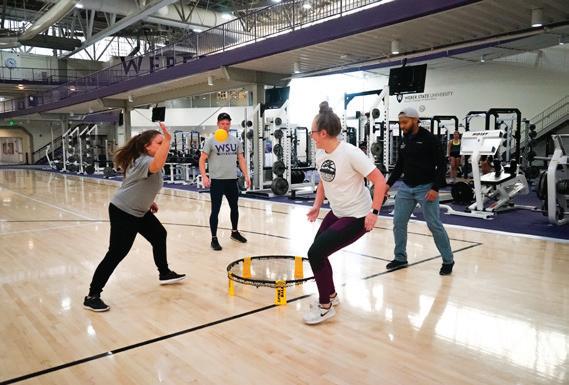
Whether you need rentals for your next adventure, or someone to guide you along the way, we have you covered!
Whether you need rentals for your next adventure, or someone to guide you along the way, we have you covered!

*Drop in strength and cardio and GroupX are FREE with an active Wildcard!
*Drop in strength and cardio and GroupX are FREE with an active Wildcard!
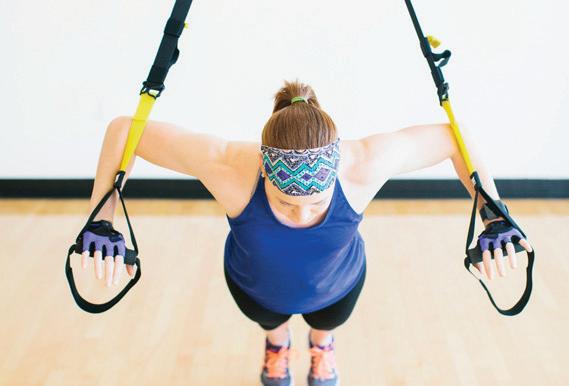
We also have a 55’ rock wall and 15’ bouldering wall in our amazing new facility! Oh, and we have a pretty cool challenge course too!
We also have a 55’ rock wall and 15’ bouldering wall in our amazing new facility! Oh, and we have a pretty cool challenge course too!
Aparte de dar consejo y guía a los estudiantes en cómo navegar la vida universitaria, las clases del FYE se valoran como tres créditos para la carrera. Estas clases son más fáciles que otras porque solo se necesita sacar una nota de D+ para aprobar la clase. Si un nuevo estudiante ya sabe su rumbo en la universidad pero quiere tener la experiencia de una clase de FYE, hay otras clases que son especializadas en varios temas. Por ejemplo, si a un estudiante le gusta la vida al aire libre, puede tomar una clase de senderismo y recibir créditos.
Otras clases especializadas son específicas a las varias escuelas de la universidad como la de los negocios o de la ciencia social.
También hay clases de honor que alguien puede tomar para explorar las variedad de carreras. Las clases de honor son guiadas por un estudiante y se enfocan más en las conversaciones que en las ponencias. Si un estudiante ya sabe qué tipo de carrera quiere estudiar, las clases de escuela específica son buenas, pero las clases de FYE pueden ayudar a solidificar su elección de carrera. Estas clases también hablan de qué tipo de carrera de escuela es necesaria para cada tipo de trabajo.
Los estudiantes que ya han tomado la clase tienen la oportunidad de ser un mentor paritario y apoyar a los nuevos estudiantes.
Para estos estudiantes hay una clase que da la oportunidad de aprender las habilidades del liderazgo y también ofrece una renuncia de matrícula y créditos de división superior.
“Mi historia con el FYE es que tomé la clase como estudiante hace años y después fui un mentor para varios semestres, entonces simplemente nunca me fui”, dijo Olsen. “Ahora soy directora asistente del programa y probablemente estaré aquí hasta la muerte, ese es mi sueño”.Empezar la universidad puede ser algo emocionante y estresante a la vez. La universidad Weber State ofrece una programa de la experiencia del primer año (el FYE en inglés) para apoyar a los nuevos estudiantes a guiarse en la universidad.
“La clase es sobre el aprendizaje de las habilidades necesarias para ser exitoso, incluyendo cómo gestionar el tiempo y el estrés, y cómo formar metas. Hablamos mucho sobre el propósito del aprendizaje universitario”, dijo Ariel Olson, directora asistente del FYE.


Fundado en 1995, el FYE intenta apoyar a
los estudiantes a tener la mejor experiencia posible. Esto incluye informar a los estudiantes sobre la ubicación de servicios, clubs, y oportunidades de contactos del campus.



“También hablamos sobre muchos recursos del campus para que nadie llegue al año final de la universidad con el deseo de arrepentirse por no haber sabido algo”, dijo Olsen.
En cada clase del FYE hay alrededor de veinte estudiantes y un mentor paritario. El mentor también es estudiante pero ha sido estudiante al menos un semestre. Los mentores están para ser más accesibles y cómodos de pedir ayuda en comparación con un instructor.
Más información y respuestas a las preguntas se encuentran en Weber.edu/fye y fye@weber.edu.
POR ALMA BELL Reportero POR NATHANAEL STOUT Traductor



The National Undergraduate Literature Conference will be held on March 30-April 1 in Elizabeth Hall, and this year Nobel Prize winning poet and previous United States poet laureate Louise Glück will be speaking. NULC is a conference where student authors and poets can come together to share their work, and it usually includes a guest author presentation keynote.
Glück will have two panels on March 30 and 31, both from 10:3011:30 a.m. On March 30, she will be interviewed by Laura Stott, an English professor at Weber State, who has studied Glück for over 25 years.

Since finding out she would be the interviewer in the fall 2022 semester, Stott has been eagerly preparing for the event.
“I’ve read a lot of her work, and I’ve just been thinking that over for quite some time,” Stott said.
In addition to these preparations, Stott has also watched previous interviews of Glück to get a feel for her interview style.
Stott showed her collection of Glück’s books, saying the first she ever owned was “The Wild Iris.” This collection of poetry focuses around a garden and floral theme, winning a Pulitzer Prize in 1993.
“I think I quickly fell in love with just her kind of contemplative sort of writing style,” Stott said.
That style has influenced Stott’s own poetry. In Stott’s first book of poetry, “In the Museum of Coming and Going,” she has a collection of poems titled “Migration” that express similar themes in unique manners.
Glück utilizes a similar technique in a few of her poems. Stott said Glück’s work gave her the permission to try out similar techniques, and it was okay to write in similar ways.
Stott is excited for the opportunities it will bring to students. The conference will be filled with student presentation sessions, in which a handful of selected student authors, poets and researchers will present their work in a panel. There are several different categories for these sessions, including poetry, fiction and research in American literature.
Stott mentioned that presenting at the conference is great for student writers because they can get a sense of completion by sharing their work with others. She said the conference is also great for resumés and applications to graduate school.
As for Glück’s panels, Stott said she is a good example of perseverance in writing. There were several years where Glück did not write anything. Many writers and student writers experience something similar at some point, usually referred to as writer’s block. However, she kept trying and eventually continued to create meaningful works, many that have won prestigious awards.
“If you do find that there are stretches of silence, I think that’s something to realize,” Stott said.
“That doesn’t mean that it’s going to be gone forever. There will be something that really happens that will just open it back up again, and you’ll suddenly write a book really quickly.”



 By SHANIA EMMETT Reporter
By SHANIA EMMETT Reporter
Coffee and breakfast — two things that fuel college students during their time at university. Oftentimes, universities have coffee shops on campus, enabling students to satisfy their caffeine needs between classes.
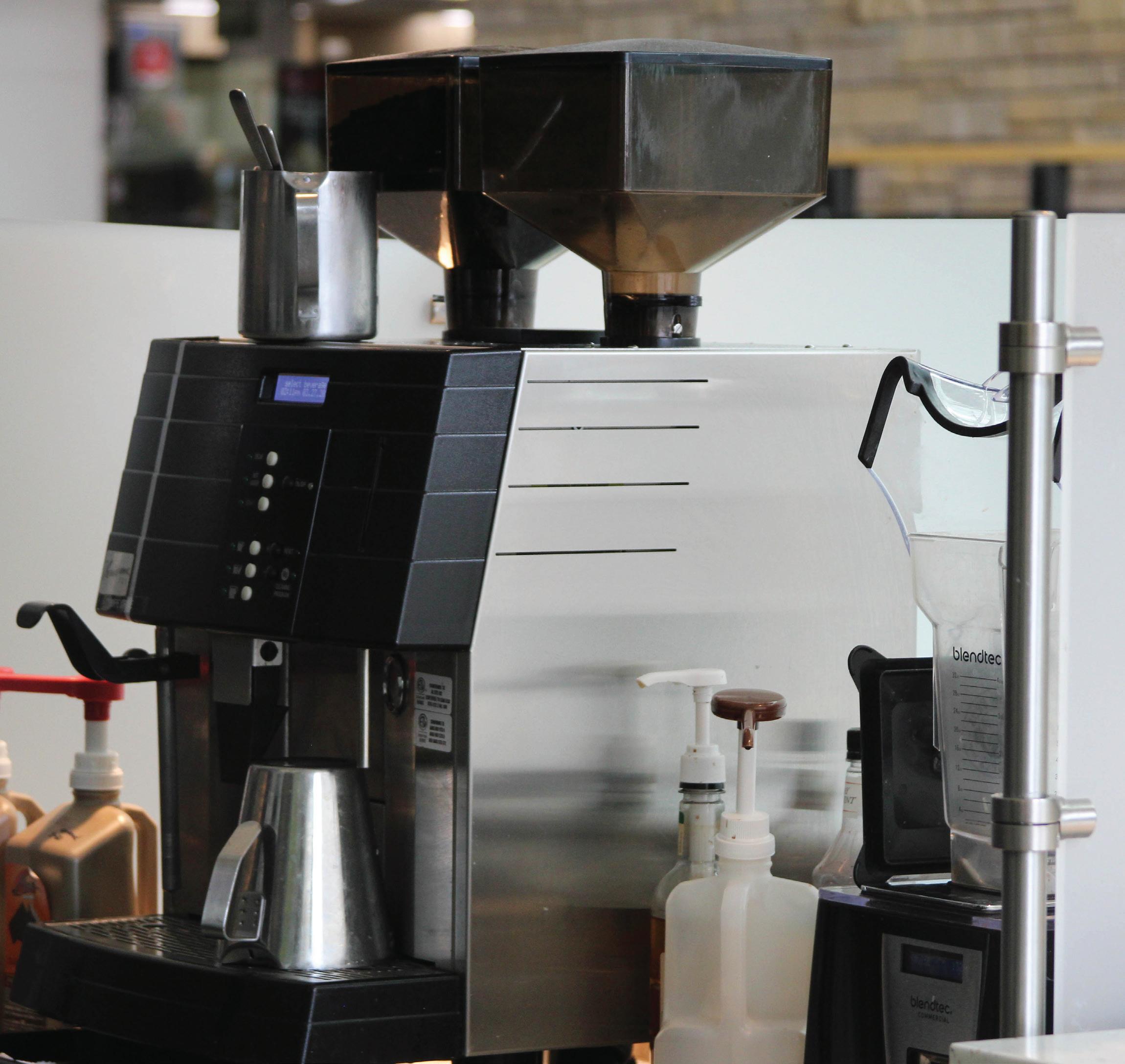
There are four different locations at Weber State University for students to get food and coffee, each with its own charm: the 626 Marketplace, Einstein Bros. Bagels, Art Elements and Starbucks.
The 626 Marketplace is located on the second floor of the Shepherd Union Building. It is open 8 a.m. to 5 p.m. Monday through Thursday and to 3 p.m. on Fridays, and is busiest during lunchtime. They have all the staples of a gas station, from Pringles to Cup of Noodles. They also have mini breakfast packs and a coffee machine or premade Starbucks lattes and energy drinks.
Einstein Bros. Bagels is also located on the second floor of the Shepherd Union. It is open 7:30 a.m. to 3 p.m. Monday through Thursday and to 2 p.m. on Fridays, and is busiest in the morning and around lunchtime. They have everything that you can get at a regular off-campus Einstein Bros. Bagels, like breakfast sandwiches, bagels, muffins and specialty coffee drinks.
You can find a Starbucks on the first floor of the Tracy Hall Science Center. It is open 8 a.m. to 5 p.m. Monday through Thursday and to 3 p.m. on Friday. Mornings aren’t too busy, but as soon as morning classes get out at around 10 or 11 a.m., students will find the line growing quickly, so get there early if you want to skip those lines.
The hidden gem of campus snacking is Art Elements, located on the first floor of the Kimball Arts Building. It is open 7:30 a.m. to 3 p.m. Monday through Friday. Not only can art students get their class supplies here, they can also find a good place to get coffee as well. They provide cheaper prices than their on campus competitors.
“The energy is something I love a lot about this place,” Kacie Karimoto, a student worker at Art Elements, said.
Art Elements is usually the busiest in the mornings around 9:30 a.m. and then stays steady throughout the day. As for popular
drinks students like to order, the white mocha latte with brown sugar cinnamon and butter rum is currently the most popular.
“It just feels like I’m hanging out for a few hours in the morning, and I love the customers — getting to know them, and knowing
their favorite drinks to order. It’s fun,” Emerson Ipsen, a student worker at the art store, said.
The espresso machine and blender for making coffee and other drinks inside of the Einstein Bros. Bagels in Shepherd Union.Typically, players are recruited out of high school with the hopes of being spotted by a scout in the NCAA. But for those who weren’t recruited, it may feel like it’s time to give up on their dreams. For athletes that weren’t recruited, there are ways to play at Weber State University. Here are the top three ways to become a Wildcat athlete:
Most walk-ons have to find a coach for their respective sport and talk to them about trying out for the team. Walk-on players have a lot of ambition to make the team, so given the opportunity, they want to succeed and prove their worth. Athletes looking to walk-on have to attend tryouts, which typically occur over the summer.
One of Weber State’s notable walk-ons was former linebacker Conner Mortensen, who recorded 142 solo tackles, three interceptions and a touchdown during his four years as a Wildcat.

Guard Cole Lake was a walk-on this season for the men’s basketball team. During the 2022-23 season, Lake played six minutes and scored 1 point.
Weber State has more than just NCAA-regulated sports on campus — there is also the opportunity to participate in club sports. These are sports that play against other colleges but are not affiliated with the NCAA.
There are multiple club teams at Weber State, including ones for hockey, baseball, men and women’s rugby, lacrosse and rodeo. Students looking to join the clubs can register at https://weber.edu/sportclubs/ clubs. Wildcats can also create their own sports clubs at Weber State by following the guidelines posted on the website.
Sports clubs fall under the umbrella of campus recreation. Most coaches volunteer with different players taking leadership in their respective roles on the team.
Other than club sports and walking on to NCAA programs, there are also intramural sports at Weber State. Intramural sports are recreational sports organized within the university.
Students can join by registering as a free agent on their website: https://www.weber. edu/intramurals. It provides a list of sports for the season as well as rules and regulations for the activities.
The intramural sports that are played in the spring are basketball, dodgeball, futsal and pickleball.
Students can choose the division they want to play in and can register to be a free agent. Intramurals are designed to help students meet new people on campus rather than to play competitively.
Walk-on Wildcat linebacker Conner Mortensen tackles University of North Dakota running back James Johannesson on Nov. 9, 2019. ROBERT CASEY | Weber State Athletics By SIMON MORTENSEN Section EditorTo give a chance for seniors to perform in front of NFL scouts, Weber State University’s football team held their Pro Day on March 22 at the Marquardt Fieldhouse.


“It was nerve-wracking but really fun to be back at Weber,” Wildcat wide receiver Ty MacPherson said. “I felt like I did what I could.”
The senior Wildcats at the event included MacPherson, tight end Justin Malone, running back Josh Davis and safety Desmond Williams. The Las Vegas Raiders, the Kansas City Chiefs and the Green Bay Packers were among the teams analyzing the players.
Using a 225-lbs. weight, scouts had players record their max amount of reps on the bench press. Williams recorded the most with 21 reps.
Recovering from injuries received during
the Wildcats’ last season, Williams was unable to compete in the rest of the Pro Day drills.
After bench presses, the scouts began to measure verticals. Davis recorded the highest vertical at 38 inches. MacPherson came in second with 35 inches, and Malone third with 34.5 inches. Players then left the weight room and headed to the field.
Giving each player a few attempts, scouts had the seniors record their long jump. Davis finished first by jumping 10 feet and three inches. MacPherson came close to Davis, jumping 10 feet and two inches and Malone jumping nine feet and 10 inches.
Recording speed, players then ran the 40-yard dash. While official times weren’t announced, MacPherson appeared to have finished best with an unofficial time of 4.57 seconds. Davis recorded an unofficial time of 4.63 seconds and Malone 4.7 seconds.
After the 40-yard dash, players were
asked to run a drill called the 20-yard shuttle, an exercise where participants line up between two cones, run to a cone 5 yards to their right, a cone 10-yards to their left and then back to their starting point.
Next was the three-cone drill, an event MacPherson felt confident doing, where players run around cones in the shape of an L, looping around the last cone.
“I was a little upset with my time, but they had me at a good time,” MacPherson said. “I thought I could run a little faster. That was the one I knew coming in that I was going to be good at.”
Following the drills, Wildcat quarterback Kylan Weisser stepped onto the field with head coach Mickey Mental to run passing routes.
Fans were not allowed to spectate at Pro Day. People close to the players, however, were able to view from the sideline, including MacPherson’s wife and newborn
daughter.
“That’s my team,” MacPherson said. “When you’re doing Pro Day, unfortunately it’s mostly for yourself. Obviously, you have the guys you’re doing it with, and you’re representing your school, but at the end of the day, it’s my future. So that’s my team. There’s my wife and my daughter, and that’s the most important team you can have.”
After scouts recorded the information they needed, they talked with the players briefly. MacPherson said that scouts told players to be patient and that they’d stay in touch. One scout from the Raiders appeared to have handed the wide receiver a business card during conversations.
No official announcements from NFL teams regarding Weber State players have been made at this time.

Balancing academic and athletic responsibilities can be demanding on freshman athletes. Players constantly have to juggle between their school and sports commitments, something that’s often tough on freshmen who are still adjusting to the college lifestyle.
Part of that juggling includes early-morning practices, afternoon games and traveling. Adding to the mix is pressure from teammates, coaches, professors and fans.
“The biggest change from high school soccer to college is the time management — going from high school, where it’s not that challenging, to college, where you are working for something, such as getting your degree and managing being a student athlete,” Grace Kirby, a Weber State University’s women’s soccer forward, said.







Playing right wing, Kirby is currently a freshman. In her first year of college soccer, Kirby was able to play 827 minutes during the 2022 fall season. In that time, Kirby scored 11 shots on goal off 32 attempts, recording a season high of five shots against the University of Colorado.
“When I look back on my freshman year, it was challenging, but it allowed for opportu-

nities for growth and positive change,” Kirby said. “It’s taught me about having a positive mindset, consistency and knowing that hard work is key.”

The women’s soccer team has a total of nine freshmen, seven sophomores, nine juniors and two seniors. Heading into next season, Weber State has a high volume of upperclassmen, providing a solid structure for player development.

“The upperclassmen have been so helpful,” Kirby said. “When I first got to Weber State, I immediately felt welcome and a part of a family. Whenever I had concerns or needed help, I felt comfortable to go to the upperclassmen.”




Led by captains like goalkeeper Mekell
Moss and midfielder Yira Yoggerst, Weber State was able to finish the fall season with a 6–12 overall record and a 4–4 record in Big Sky conference play.
Heading into fall semester, the women’s soccer team has been preparing with preseason games this spring and tournaments in the summer.
“Some things that I’ve learned throughout preseason is practice how you want to play,” Kirby said. “There’s no reason to not give your best effort no matter what you’re doing.”

Sarah Ruhl, freshman infielder for the softball team, has also learned a lot about developing her own game during her time with the Wildcats. Following in her older sis-
 Emily Ruhl stands ready at the home plate for a pitch. Taken March 2022.
SUMMER MUSTER | The Signpost
Emily Ruhl stands ready at the home plate for a pitch. Taken March 2022.
SUMMER MUSTER | The Signpost
ter Emily’s footsteps, Sarah joined the team during the offseason.
“Growing up, we usually played softball together on the same teams,” Sarah Ruhl said about her sister. “Her being at [Weber State] really made my transition easier.”
Though the transition from high school softball to college has been strenuous, Sarah Ruhl said her experience on the Wildcat softball team has greatly improved her game, as well as her passion for the sport.

“Trusting myself and trusting my teammates has been a big [take away from preseason],” Sarah Ruhl said. “Sometimes I get on the field and I’ll start to doubt my talents, but once I know that my teammates have my back and they believe in me, then I start










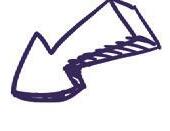












Weber State is coming off a successful previous season and has Big Sky softball just around the corner. Though the stress can be a lot for freshmen on the team, Sarah Ruhl said she’s had her teammates to back her up and support her through her first season.
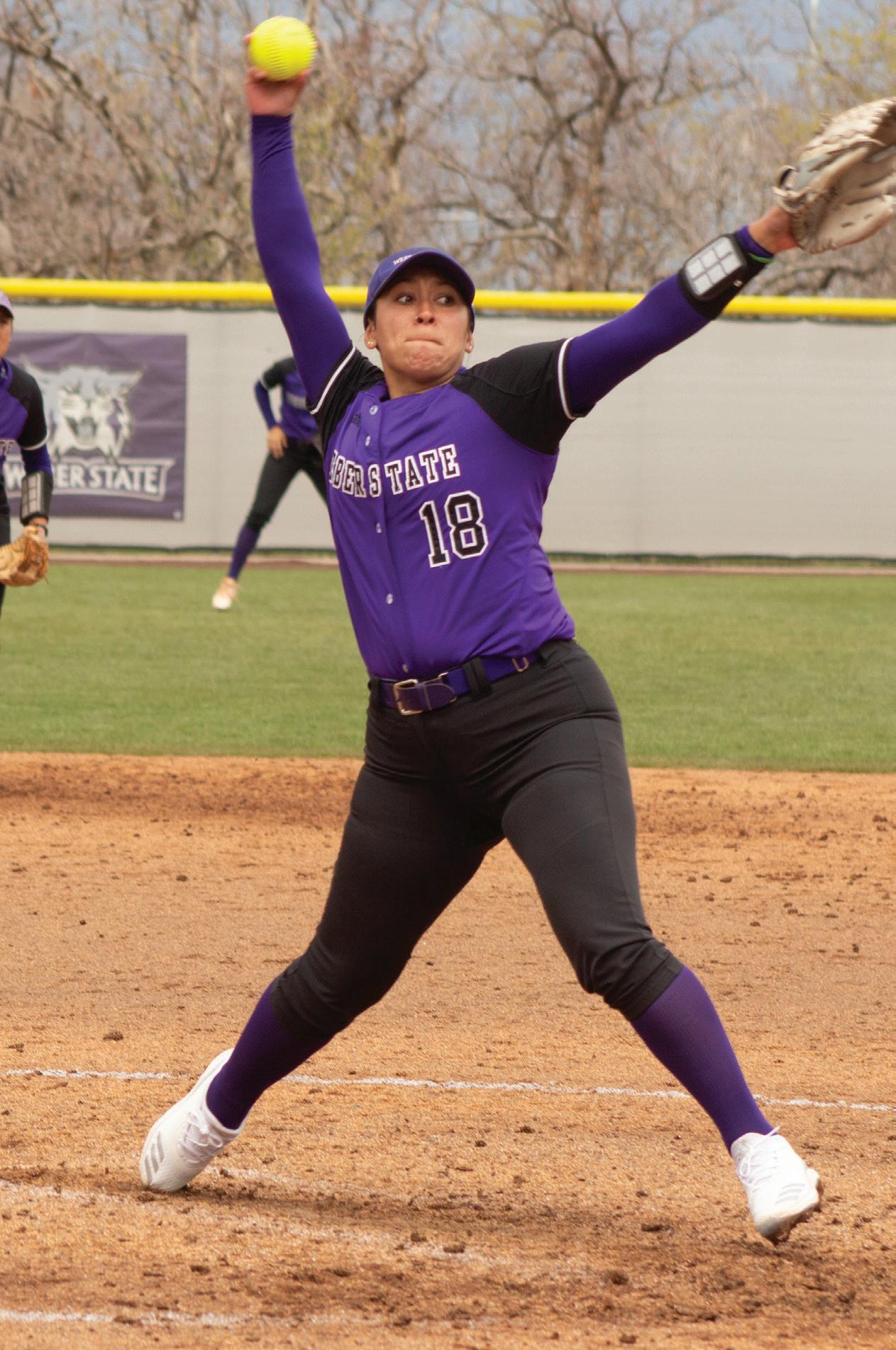

“Being around all those upperclassmen and them helping me out has really helped,” Sarah Ruhl said. “You have someone who has been playing here multiple years, giving you insight into what they think and what they know how to do. Just learning from them has made it really fun because you can just see the skills in them and they’re transferring them to you and
sharing the knowledge with you, which is really cool. It’s helped me become a better athlete and a better player for myself.”
Sarah Ruhl said she not only has the support of her teammates but also the support of Weber State. The university has helped to create an environment to help student athletes, like her, thrive both academically and athletically.


“Coming into Weber, I was nervous because I was like, ‘What if I don’t do well academically and keep those grades up for my scholarship?’” Sarah Ruhl said. “It’s been a lot easier than I would have thought just because of how much support I have with tutoring or teammates helping me out.”

Though being a freshman college athlete
brings its challenges like homesickness, intense practices and tougher opponents; Sarah Ruhl has found the transition to life as a college athlete as a good experience.
“It’s gonna get stressful at times,” Sarah Ruhl said. “But if you take the fun times and remember the memorable times with your team as much as you can, it makes the process a lot easier and you’re gonna get negative talk from your coach occasionally, but as long as you take the positive parts from it and leave out the negatives and it will make it a lot easier.”
Share this story at

 By BRISA ODENTHAL Reportero
By BRISA ODENTHAL Reportero
Equilibrar las responsabilidades atléticas y académicas pueden ser exigentes para los atletas en su primer año de la universidad. Los jugadores constantemente tienen que difundir su enfoque entre sus compromisos de la escuela y del deporte, algo que es difícil para los que todavía están acostumbrándose a la vida universitaria.
Parte de lo que ocupa el horario son las prácticas temprano en la mañana, los partidos en la tarde y los viajes. Además tienen que soportar la presión de sus compañeros de equipo, sus entrenadores, los profesores y los fanaticos.
“El cambio más evidente entre el fútbol de la escuela secundaria y la universidad
es la gestión del tiempo”, dijo Grace Kirby, una delantera del equipo de la universidad Weber State. “En la escuela secundaria no es muy exigente, pero en la universidad hay que trabajar para algo, como la carrera, y también llevar la responsabilidad de ser una atleta a la vez”.
Jugando en la posición derecha, Kirby actualmente está en su primer año de la escuela, durante la cual ha jugado 827 minutos durante la temporada del otoño de 2022. Durante este tiempo Kirby ha marcado once goles de 32 intentos, marcando un récord de la temporada de cinco tiros contra la Universidad de Colorado.
“Pensando en este año, fue difícil, pero me dió oportunidades de desarrollo y cambio positivo”, dijo Kirby. “Me ha enseñado sobre la necesidad de una perspectiva positiva, la coherencia, y la sabiduría que el trabajo duro es esencial”.
El equipo femenino tiene un total de nueve estudiantes del primer año, siete del segundo, nueve del tercero y dos del final. Al
empezar la próxima temporada, Weber State tiene un gran número de estudiantes de los años finales, lo cual provee una estructura sólida para desarrollo de jugadores.
















“Los estudiantes mayores han sido tan útiles”, dijo Kirby. “Cuando vine a Weber State, de inmediato me sentí bienvenida y como parte de una familia. Cuando tenía inquietudes o necesitaba ayuda, me sentía cómoda al hablar con los estudiantes mayores”.
Dirigido por capitanas como la portera Mekell Moss y la mediocampista Yira Yoggerst, Weber State terminó la temporada de otoño con un récord de 6–12 sobre todo y un récord de 4–4 en la conferencia Big Sky.

Al llegar al semestre del otoño próximo, el equipo femenino está preparando con partidos de pretemporada durante esta primavera y torneos en verano.
“Algunas cosas que he aprendido durante la pretemporada es que hay que practicar en la misma manera en que se quiera jugar”, dijo Kirby. “No hay motivo para no dar el
mejor esfuerzo ni importa lo que se haga”.
Sarah Ruhl, estudiante del primer año y mediocampista para el equipo de sóftbol, también ha aprendido mucho sobre el desarrollo de sus habilidades durante su tiempo con los Wildcats. Siguiendo los pasos de Emily, su hermana mayor, Sarah se unió al equipo durante la temporada inactiva.
“De niña, usualmente jugábamos al sóftbol juntos en el mismo equipo”, dijo Sarah Ruhl sobre su hermana. “Su presencia aquí hizo que mi transición fuera más fácil”.
Aunque la transición entre el sóftbol de la escuela secundaria y de la universidad ha sido difícil, Sarah Ruhl dijo que su experiencia en el equipo de sóftbol Wildcat ha mejorado su juego tanto como su pasión por el deporte.
“Confiar en mí mismo y confiar en mis compañeros han sido algo muy importante que he aprendido de la pretemporada”, dijo Sarah Ruhl. “Algunas veces llego al campo y empiezo dudar de mis talentos, pero cuando recuerdo que mis compañeros me apoyarán
POR NATHANAEL STOUT Traductor Women’s soccer players celebrate a goal made during their game on Oct. 23, 2022. KENNEDY CAMARENA | The Signposty me tienen confianza, entonces empiezo a confiar en mí mismo”.








Weber State está de vuelto de una temporada de éxito y tiene el sóftbol Big Sky muy pronto. Aunque el estrés puede ser duro para los nuevos del equipo, Sarah Ruhl dijo que ha tenido sus compañeros para apoyarla durante su primera temporada.










“Estar con todos los estudiantes mayores y tener su ayuda ha sido beneficioso para mí”, dijo Sarah Ruhl. “Hay alguien que ha jugado aquí durante varios años que da conocimiento, pensamientos y consejo en lo que saben hacer. Simplemente aprender de ellos ha sido divertido porque puedo ver sus habilidades y saber que me están compartiendo sus habilidades y conocimientos, y eso es excelente. Me ha ayudado a llegar a ser una mejor atleta y jugador para mí mismo”.
Sarah Ruhl dijo que no solo tiene el apoyo de sus compañeros, sino también el apoyo de Weber State. La universidad ha ayudado a crear un ambiente para ayudar a los atletas estudiantes, como ella, a crecer tanto con la



academia como con el atletismo.
“Llegando a Weber, estaba nerviosa porque pensaba, ‘¿y si no tengo éxito con la academia y fallo en obtener las notas necesarias para mi beca?’” dijo Sarah Ruhl. “Ha sido más fácil de lo que pensaba por la cantidad de apoyo que tengo con la tutoría o con ayuda de mis compañeros”.




Aunque ser una atleta en el primer año de la universidad trae dificultades como la nostalgia, la práctica intensa y oponentes fuertes, sobre todo Sarah Ruhl ha tenido una buena experiencia con la transición a la vida como atleta universitaria.
“Será estresante a veces”, dijo Ruhl. “Pero si me esfuerzo a recordar los tiempos divertidos y los momentos memorables con mi equipo, el proceso llegará a ser mucho más fácil. Es probable escuchar cosas negativas del entrenador ocasionalmente, pero si solo se enfoca en lo positivo y no en lo negativo será más fácil.
The Emerging Leaders Program is a self-discovery program designed to help you better know yourself and how you effectively lead others.






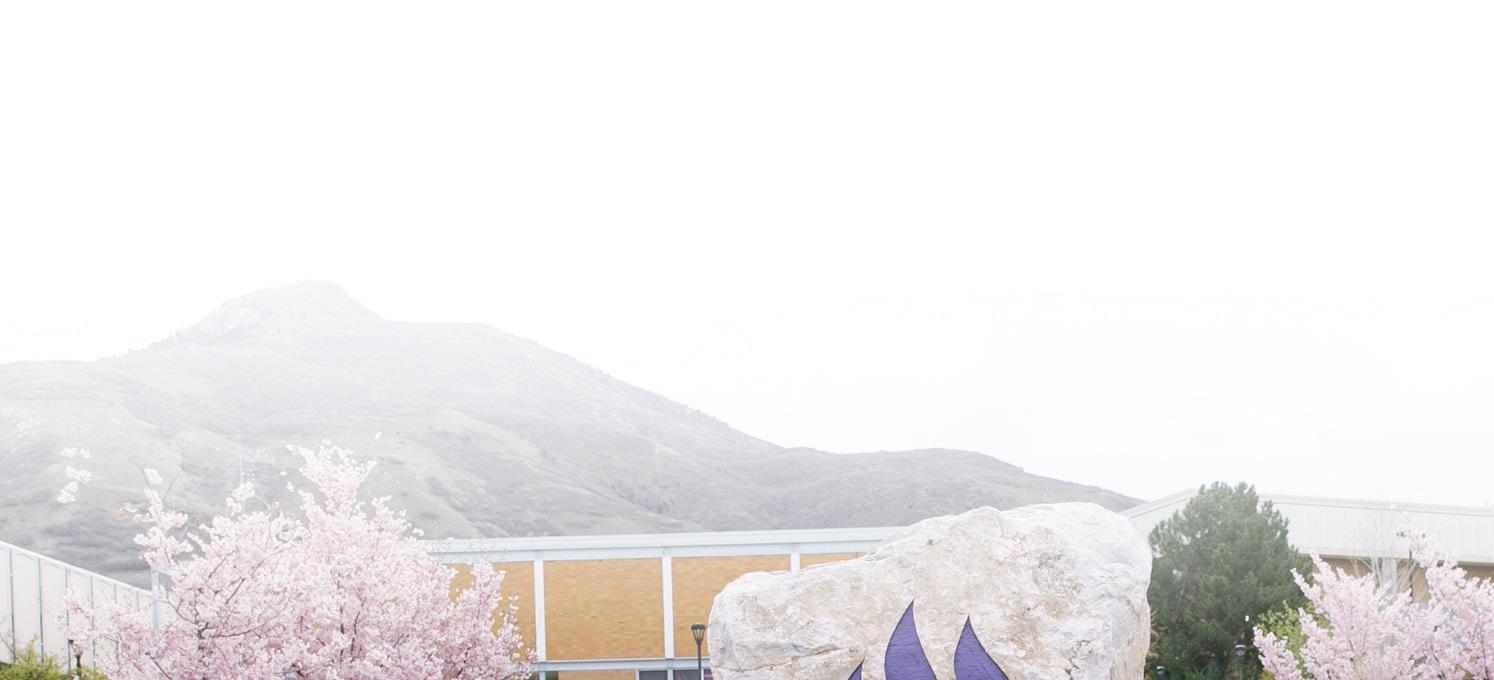
Students get a scholarship to participate in the program. Learn more about this program, requirements, scholarship amounts and apply at: weber.edu/StudentInvolvement/emerging-leaders.html

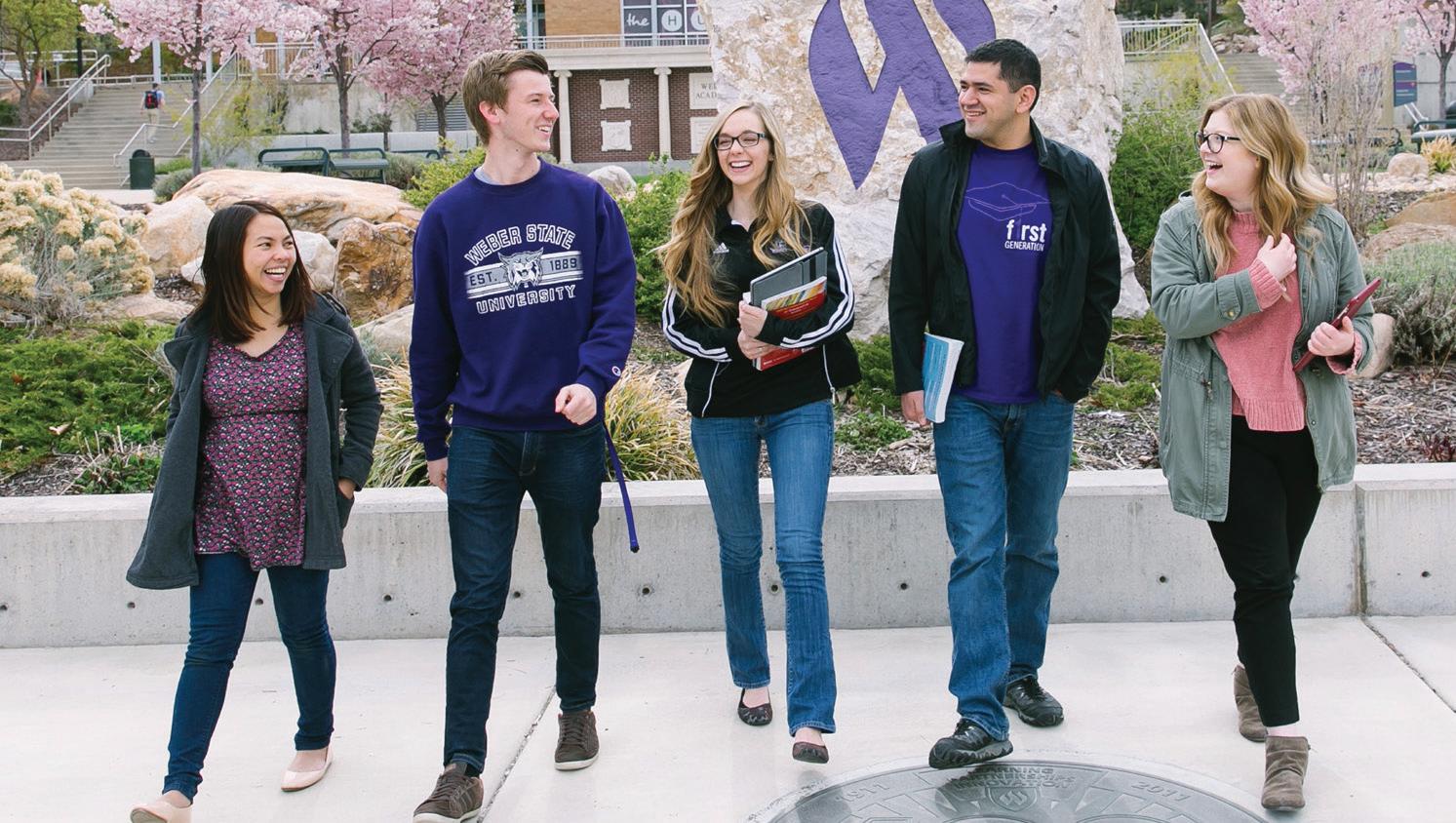
“It is never too late,” It is a sentence we hear throughout our lives. It can be about accomplishing our dreams, trying new hobbies or even attending college. As a nontraditional student, it is a sentence that has more meaning to me with every passing day.
What is a nontraditional student? It is defined by Weber State University’s Nontraditional Student Center as being a student over 25, having a spouse or committed partner, being divorced or widowed, and/or having children.

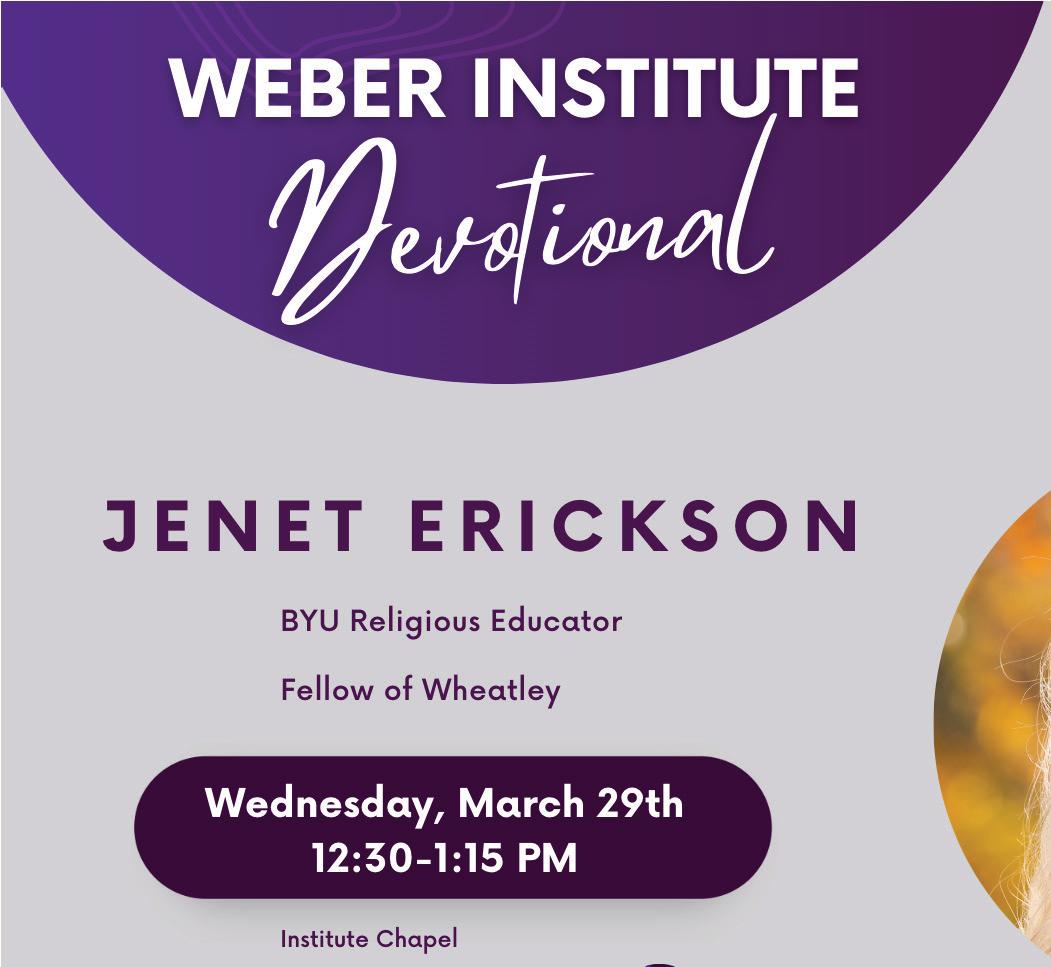
I graduated from high school in 2003 from Northridge High School. School was tough for me during high school, as I live and struggle with Attention Deficit Hyperactive Disorder and Nonverbal Learning Disorder. I didn’t think I could succeed in school, nor did I think it was in my future to go to college. I didn’t have a strong support
system for school either, so I just pressed on with work.
It wasn’t until I married my wife, who is an academic advisor at Weber State, that I saw an actual future for myself. But the question lingered in my mind: Am I too old for college? As someone in their mid-30s, it was a real concern.
I am here to tell you that you are never too old for college. There are many resources for the nontraditional students who may be unfamiliar with or concerned about their success as a college student. While many of us struggled due to lack of resources in high school, college provides opportunities to succeed despite personal struggles. A resource that has been favorable to me is the Melba S. Lehner Children’s School, which provides child care and education for the children of WSU students, faculty and staff. As a full time nontraditional student, this has been a boon for me and my wife. The staff and teachers are wonderful to work with. As an English Major, I spend my
time in Elizabeth Hall, so if one or both of my children are sick or have problems, I am only a text or phone call away and can be there in a moment’s notice.
Another resource that has been great is the study spaces found in the Stewart Library. Because of outside responsibilities, it isn’t possible for me to find time to study or work on homework at my home, so finding study spaces is life or death for me. It gives me the ability to focus on my school work.
What does being a nontraditional student look like? Well, I wake up in the morning, have breakfast, and not only get the things I need for my school day, but also help my wife and my children get ready for the day. I wake up at 5:30 a.m. and am out the door before 7:15 (if the children cooperate).
On some days, I work at the Elizabeth Hall and Tracy Hall computer labs as a lab assistant. Luckily, those shifts work around my class schedule. My supervisors have been gracious with my unique schedule.
My teachers have also been gracious when I am not able to complete assignments or make deadlines.
After the day is over at 4 p.m., it is time to get my children from school, go home and do all the things that need to be done at home. It can be hectic and involves a lot of sacrifice.
However, the hard work and sacrifice is about to pay off as I am graduating this year with my associate’s and bachelor’s degrees. It’s never too late. You can go to school despite being over 30 and all the responsibilities that you have in your life.
The Nontraditional Student Center is an available center on campus for those who may be struggling with navigating college as a nontraditional student. Their website states that 56% of students at Weber State are considered nontraditional, so reach out to find accommodations if you need them!

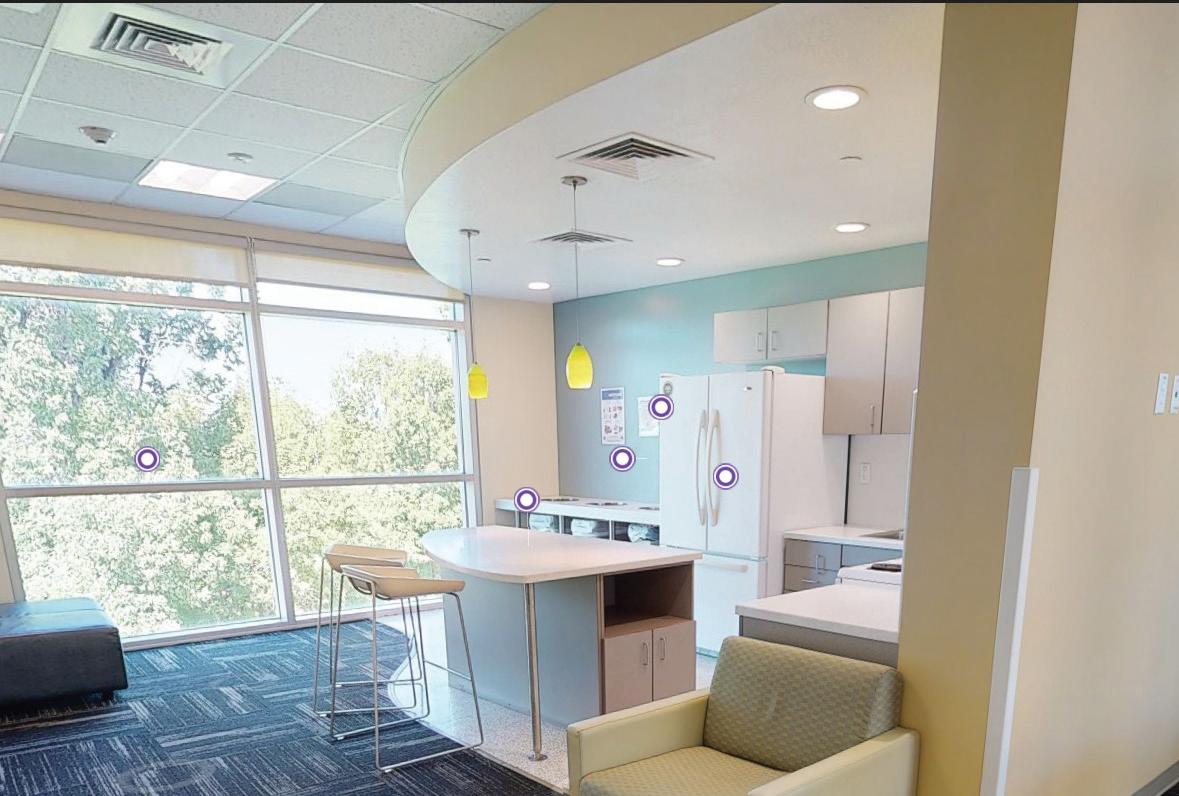



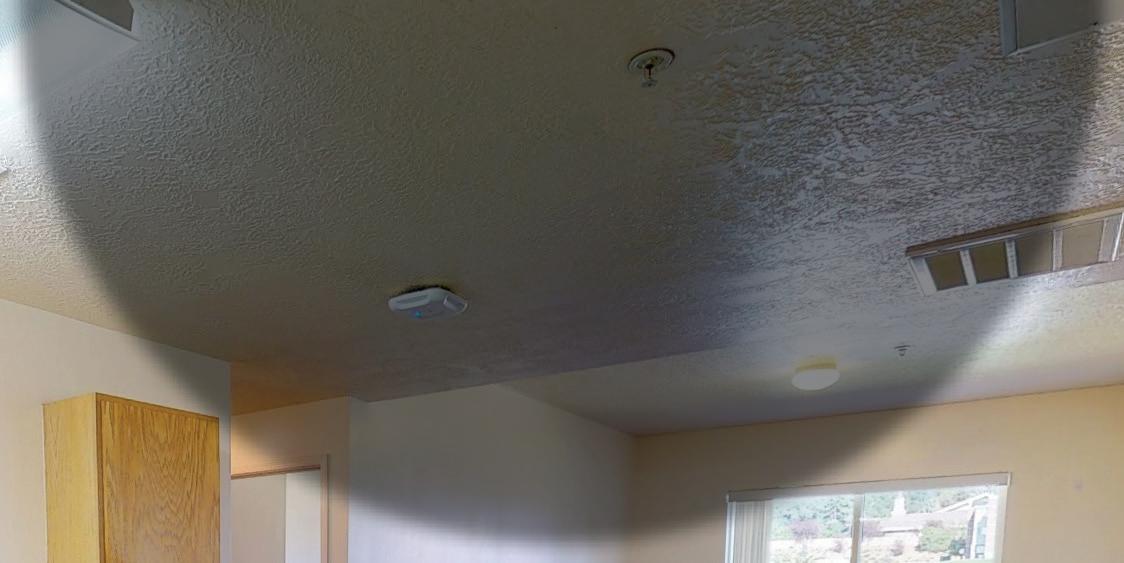


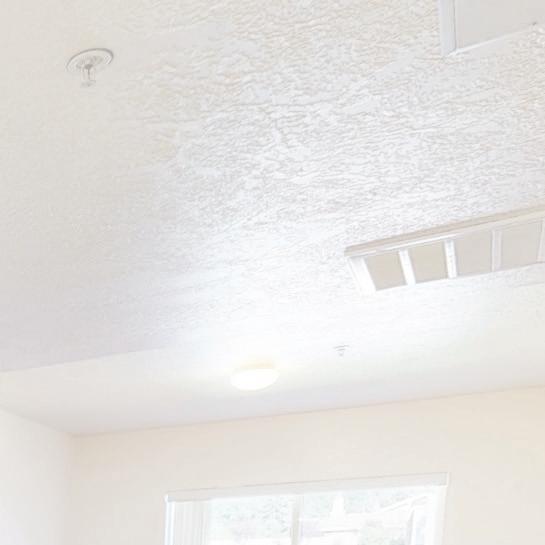
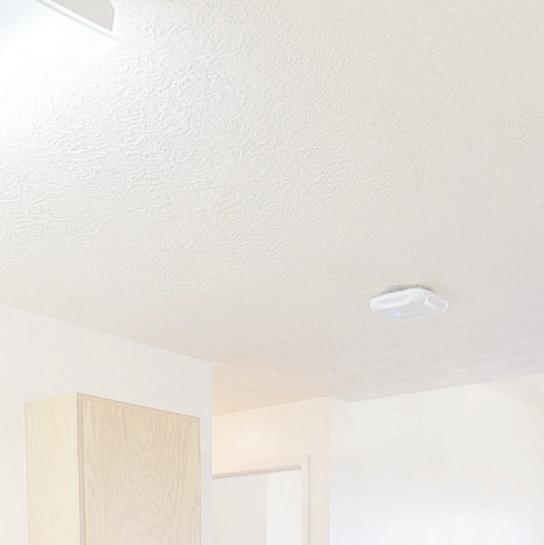


As of 2021, Weber State University’s student body is made up of more than 10% non-resident students, more commonly known as out-of-state students. WSU provides scholarships and other resources to help these students succeed.

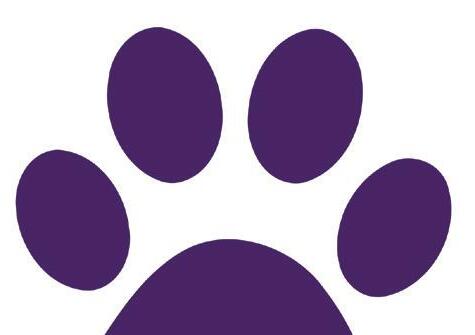


WSU currently has 712 out-of-state students enrolled for the coming 2023-24 school year. Though that number is down 6% from the previous year, many of the applicants from out-of-state applied within the past few weeks and WSU expects more to come.
“[Students] are realizing the affordability aspect of Weber State versus another school, so that’s when we are seeing a lot of these students from out of state applying,” Ryan-
Copeland, associate director of admissions, said. “We’re on track to match if not exceed [the percentage from last year].”
Because out-of-state students are not eligible for in-state tuition, WSU is part of and has developed programs to help full-time out-of-state students get affordable tuition. WSU offers scholarships based on academics, athletics, location and familial ties to these students through these programs.
Though Utah residents are able to fit within five categories on the WSU academic scholarship index, while non-residents only have three categories, the categories for non-resident students are larger to compensate for more students.
The academic scholarships available to non-residents include the Mt. Ogden Scholarship, which gives students $9,000 per school year; the Golden Spike Scholarship,
which gives students $8,000 per school year; and the Waterfall Canyon Scholarship, which gives students $7,500 per school year.
Each of these scholarships is decided by the scholarship index, which combines information from a student’s GPA and test scores.
WSU is also a part of the Western Undergraduate Exchange program which provides scholarships for students who move from one of the participating states to another for school.
Participating WUE states include Alaska, Arizona, California, Colorado, Hawaii, Idaho, Montana, Nevada, New Mexico, North Dakota, Oregon, South Dakota, Utah, Washington and Wyoming. Because most out-of-state students at WSU belong to these regions, WUE helps many of these students.
WSU also has an Alumni Legacy Nonresident Scholarship, which allows non-resident
children or grandchildren of WSU to pay instate tuition as long as they maintain a GPA of 2.5 or above and are full-time students. This lowers tuition by $9,500 for students who qualify.
WSU provides many other resources to out-of-state students, including specialized regional recruiters and admissions advisors for every part of the United States. Even if a student does not qualify for any of the WSU scholarships available to outof-state students, Utah is one of the easiest states in which to gain residency. In Utah, the residency is constituted by maintaining “a place of abode in Utah and [spending] 183 or more days of the taxable year in Utah,” according to Utah.gov.
A partir del 2021, el cuerpo estudiantil de Weber State University está compuesto por más del 10% de estudiantes no residentes, más comúnmente conocidos como estudiantes de otros estados. WSU ofrece becas y otros recursos para ayudar a estos estudiantes a tener éxito.

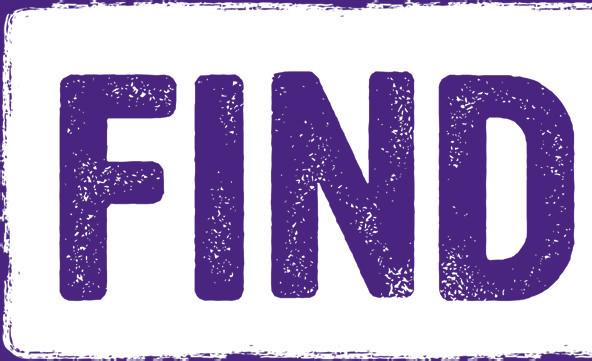




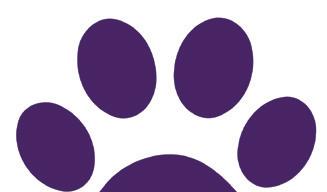
WSU actualmente tiene 712 estudiantes de fuera del estado inscritos para el próximo año escolar 2023-24. Aunque ese número ha bajado un 6% con respecto al año anterior, muchos de los aplicantes de fuera del estado aplicaron en las últimas semanas y WSU espera que lleguen más.
“[Los estudiantes] se están dando cuenta del aspecto de la asequibilidad de Weber State en comparación con otra escuela, así es
cuando vemos que muchos de estos estudiantes de fuera del estado solicitan ingreso”, dijo Ryan Copeland, director asociado de admisiones. “Estamos en camino de igualar, inclusive superar, [el porcentaje del año pasado]”.
Debido a que los estudiantes de fuera del estado no son elegibles para la matrícula estatal, WSU hace parte y ha desarrollado programas para ayudar a los estudiantes de tiempo completo fuera del estado a obtener una matrícula asequible. WSU ofrece becas basadas en lo académico, el atletismo, la ubicación y los lazos familiares para estos estudiantes a través de estos programas.
Aunque los residentes de Utah pueden encajar dentro de cinco categorías en el índice de becas académicas de WSU, mientras que los no residentes solo tienen tres categorías, las categorías para estudiantes no residentes son más grandes para compensar a más estudiantes.
Las becas académicas disponibles para no residentes incluyen la Beca Mt. Ogden, que otorga a los estudiantes $9,000 por año escolar; la Beca Golden Spike, que otorga a los estudiantes $8,000 por año escolar; y la Beca Waterfall Canyon, que otorga a los estudiantes $7,500 por año escolar.


Cada una de estas becas se decide por el índice de becas, que combina información del GPA de un estudiante y los puntajes de las pruebas.

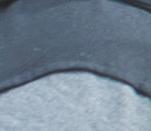

WSU también es parte del programa Western Undergraduate Exchange que ofrece becas para estudiantes que se mudan de uno de los estados participantes a otro para estudiar.



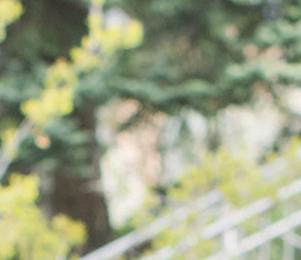
Los estados WUE participantes incluyen Alaska, Arizona, California, Colorado, Hawái, Idaho, Montana, Nevada, Nuevo México, Dakota del Norte, Oregón, Dakota del Sur, Utah, Washington y Wyoming. Debido a que la mayoría de los estudiantes de WSU de otros
estados pertenecen a estas regiones, WUE ayuda a muchos de estos estudiantes.
WSU también tiene una beca para no residentes de Alumni Legacy, que permite a los hijos o nietos no residentes de WSU pagar la matrícula estatal siempre que mantengan un GPA de 2.5 o superior y sean estudiantes de tiempo completo. Esto reduce la matrícula en $9,500 para los estudiantes que califiquen. WSU proporciona muchos otros recursos a estudiantes de otros estados, incluidos reclutadores regionales especializados y asesores de admisiones para cada parte de los Estados Unidos.
Incluso si un estudiante no califica para ninguna de las becas de WSU disponibles para estudiantes de otros estados, Utah es uno de los estados más fáciles para obtener la residencia. En Utah, la residencia se constituye manteniendo “un lugar de residencia en Utah y [pasando] 183 días o más del año fiscal en Utah”, según Utah.gov.

New students get excited for Experience Weber, coming August 2023!

OUTDOOR ADVENTURE & WELCOME CENTER
• 55’ Rock Climbing Wall

• 15’ Bouldering Walls
• Climbing Clinics & Summer Camps
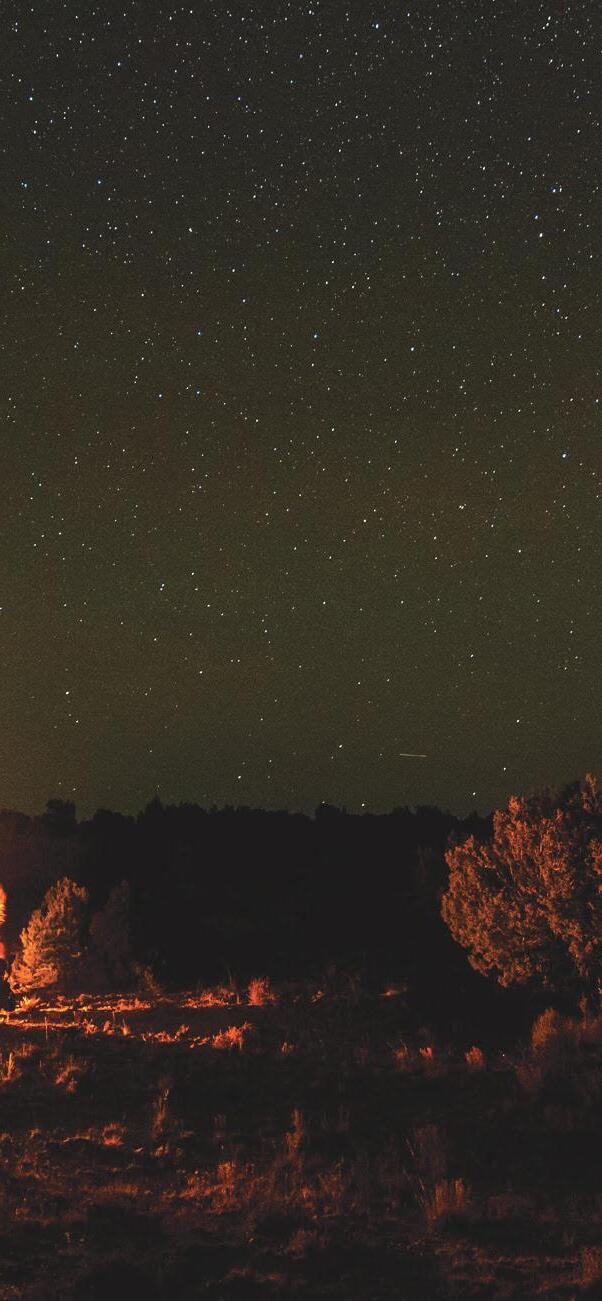

• Gear Rentals & Tuning
• Indoor & Outdoor Rappelling
• Guided adventures!

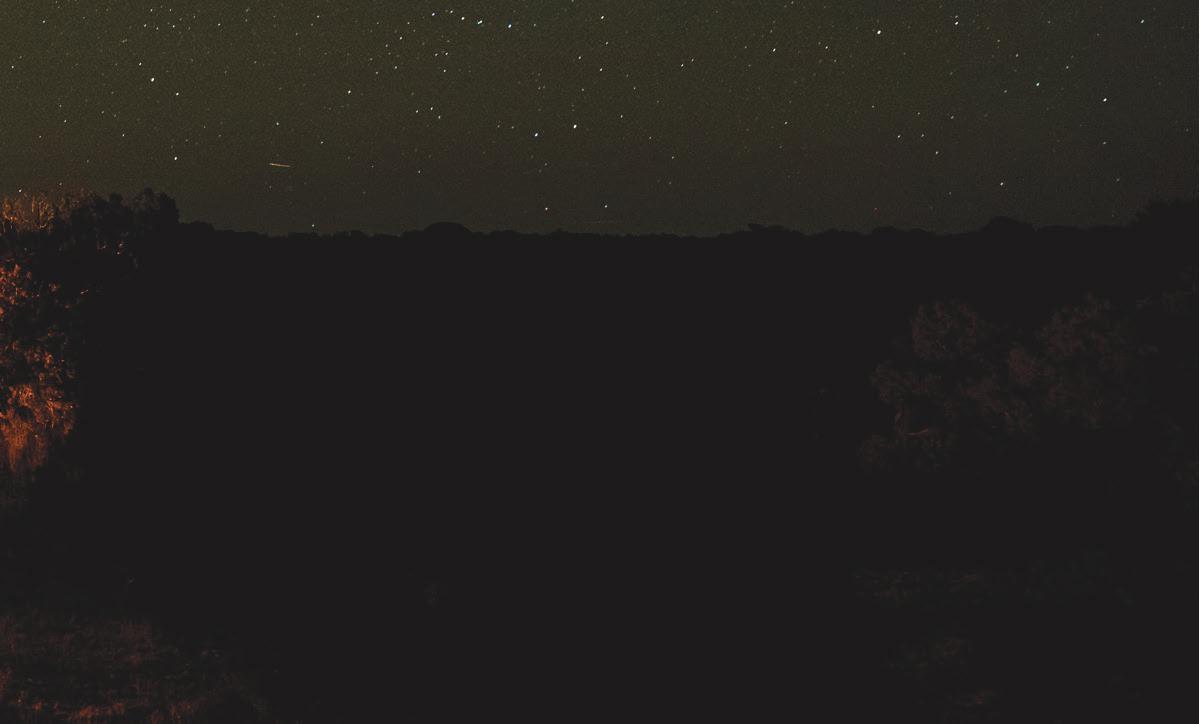
• Rock climbing, backcountry skiing, paddle boarding, rafting, kayaking and so much more!


weber.edu/outdoor













































The correct answer is B, Physician Assistant.

According to Fox 13 Weber State University launched its new physician assistant program. With this addition, WSU now offers 20 graduate programs. This degree enables students to apply for national board certification to help fill the physician shortage around the nation.





















Editor-in-Chief Breanna Hart breannahart@mail.weber.edu
Managing Editor Alexandrea Bonilla alexandreabonilla@mail.weber.edu
Design & Graphics Editor Star Neil starneil@mail.weber.edu


Asst. Design & Graphics Editor Emilie Hart emiliehart@mail.weber.edu
Photo Editor Kennedy Camarena kennedycamarena@mail.weber.edu
The correct answer is C, Sonora Grill. According to the Standard Examiner, WSU partnered with Sonora Grill to raise money for WSU’s Opportunidad Scholarship. This scholarship is geared toward low-income, first-generation and undocumented students who don’t qualify for federal aid, grants or loans. It’s the 10th annual installment of the initiative, which has raised nearly $200,000 since its launch.
The answer is A, Seven. According to Deseret News, seven of the eight WSU deans are women and according to a 2022 Utah State University study found that the rate of female principals is lower in Utah than the national average. On International Women’s Day three of WSU’s female deans shared their experiences to inspire women in leadership.
The answer is A, Seven. According to Deseret News, seven of the eight WSU deans are women and according to a 2022 Utah State University study found that the rate of female principals is lower in Utah than the national average. On International Women’s Day three of WSU’s female deans shared their experiences to inspire women in leadership.
Asst. Photo Editor Anna Kuglar briannakuglar@mail.weber.edu
Chief Copy Editor Justin Steed justinsteed@mail.weber.edu
News Editor Lucas Moore lucasmoore@mail.weber.edu
News Editor Tim Costello timcostello@mail.weber.edu
Sports Editor Simon Mortensen simonmortensen@mail.weber.edu
Asst. Sports Editor Rayshaun Baker-Lynch rbakerlynch@mail.weber.edu
Culture Editor Adam Montgomery adammontgomery1@mail.weber.edu
Culture Editor Lexie Andrew lexieandrew@mail.weber.edu
Translation Editor Marianna Lopez-Luritta mlopezluritta@mail.weber.edu
The Signpost is a






publication, written, edited and drafted by Weber
fees fund

Opinions or positions voiced are not necessarily endorsed by
printing
university. The Signpost reserves the right to edit for reasons of space and libel and to refuse to print any letters. Letters to the editor should be submitted online to thesignpost@weber.edu and write “Letter to the Editor” in the subject line. Letters should not exceed 350 words.
Advisor Jean Norman jeannorman@weber.edu



Business Manager Rob Steedley robertsteedley@weber.edu

You only need to be 19 years old to receive your certification to work in corrections, a gateway into law enforcement after you turn 21.

Full-time and part-time programs are available. Academy classes start every fall and spring semester.
Registration: Jan. 16–June 30